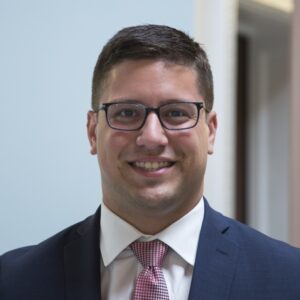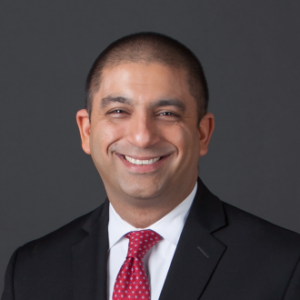
As NSI kicked off its year-long series on examining the links between critical minerals and U.S. national security policy, this initial event focused on threats posed by China and other adversarial nation-states, logistical problems magnified by the COVID-19 pandemic, as well as other challenges like the need for increasing U.S. manufacturing capacity and the ability of reshoring and ‘friend-shoring’ to replace existing supply chains. Key themes and questions we explored at this event included:
- While the United States has rare earth mining capabilities, most of what gets mined gets sent to China for further processing before being shipped back to the U.S. or incorporated in various manufacturing processes overseas. With China processing or/and refining almost all of the world’s rare earth minerals, China could leverage rare earth minerals and withhold resources from nation-states that do not align with the Chinese Communist Party’s interests. How can the United States prevent supply and price manipulation from China?
- The two most recent whole-of-government approaches to energy security came as directed by Executive Order (E.O.) 13953 and 14017 under the Trump and Biden Administrations, respectively. How did these E.O.’s differ from one another, and are there still strategic gaps that need to be addressed by executive action?
- Does Congress need to provide more authorities to the executive branch regarding energy security policy?
- With other countries having potential capabilities in the forms of untapped supply or industrial capacity, are there traditional Western allies or other like-minded countries with critical mineral capabilities that the United States should partner with to improve our supply chain security?
Participants:
 Adina Renee Adler: Adina joined Silverado Policy Accelerator in February 2022 as Deputy Executive Director to lead Silverado’s work on Trade & the Circular Economy, critical minerals supply chains, and other key trade and environmental policy issues. She also works closely with leadership to execute Silverado’s growth to effectively lead accelerated policy that advances American prosperity and global competitiveness in the 21st century.
Adina Renee Adler: Adina joined Silverado Policy Accelerator in February 2022 as Deputy Executive Director to lead Silverado’s work on Trade & the Circular Economy, critical minerals supply chains, and other key trade and environmental policy issues. She also works closely with leadership to execute Silverado’s growth to effectively lead accelerated policy that advances American prosperity and global competitiveness in the 21st century.
Prior to Silverado, Adina was Vice President of Advocacy at the Institute of Scrap Recycling Industries (ISRI), a trade association, overseeing government relations efforts at the State, Federal and International levels, advocacy with law enforcement and ISRI’s commodities and market analysis on behalf of the recycling industry. Prior to ISRI, Adina was Director of Global Government Affairs for Alcoa and Arconic and International Government Relations Advisor for Shell Oil Company, advising business leaders on trends in U.S. trade and international policy. Adina also served in the U.S. Government as Director for South Asia in the Office of the United States Trade Representative (USTR) and International Trade Specialist at the U.S. Department of Commerce, both assignments responsible for U.S. commercial and trade policy with the countries of South Asia. Adina has a B.A. in International Affairs from The George Washington University and M.A. in International Economics and International Law from The Johns Hopkins University School of Advanced International Studies (SAIS) and has lived in and traveled to more than 80 countries for business and pleasure.
 Drew Horn: GreenMet was founded by former Green Berets and public servants, including former senior administration and congressional staffers. The team is led by CEO Drew Horn, a former U.S. Army Special Forces officer, who has led the U.S. effort to assess and respond to vulnerabilities in the rare earth supply chain. He has examined these issues from many lenses, including his work with the White House, the Department of Energy, and the Office of the Director of National Intelligence. He founded GreenMet to address the overwhelming need for a sustainable and secure supply chain for rare earth metals, magnets, and green steel in North America.
Drew Horn: GreenMet was founded by former Green Berets and public servants, including former senior administration and congressional staffers. The team is led by CEO Drew Horn, a former U.S. Army Special Forces officer, who has led the U.S. effort to assess and respond to vulnerabilities in the rare earth supply chain. He has examined these issues from many lenses, including his work with the White House, the Department of Energy, and the Office of the Director of National Intelligence. He founded GreenMet to address the overwhelming need for a sustainable and secure supply chain for rare earth metals, magnets, and green steel in North America.
 Alex Jacquez: Alex Jacquez serves as Special Assistant to the President for Economic Development and Industrial Strategy for the White House National Economic Council. Prior to joining the Biden-Harris Administration, he served as Senior Policy Advisor for labor and economic policy on the Senate Budget Committee under Chairman Bernie Sanders (I-VT). He has previously served in various policy and engagement roles for Senate Democratic leadership, the Obama-Biden White House, the U.S. Department of Agriculture, and federal and state campaigns. He graduated from Lehigh University.
Alex Jacquez: Alex Jacquez serves as Special Assistant to the President for Economic Development and Industrial Strategy for the White House National Economic Council. Prior to joining the Biden-Harris Administration, he served as Senior Policy Advisor for labor and economic policy on the Senate Budget Committee under Chairman Bernie Sanders (I-VT). He has previously served in various policy and engagement roles for Senate Democratic leadership, the Obama-Biden White House, the U.S. Department of Agriculture, and federal and state campaigns. He graduated from Lehigh University.

Jamil N. Jaffer (Moderator): Jamil N. Jaffer is the founder and executive director of the National Security Institute at George Mason University’s Antonin Scalia Law School. He previously served as chief counsel and senior adviser to the Senate Foreign Relations Committee and, among other roles, as an associate counsel to President George W. Bush in the White House.
